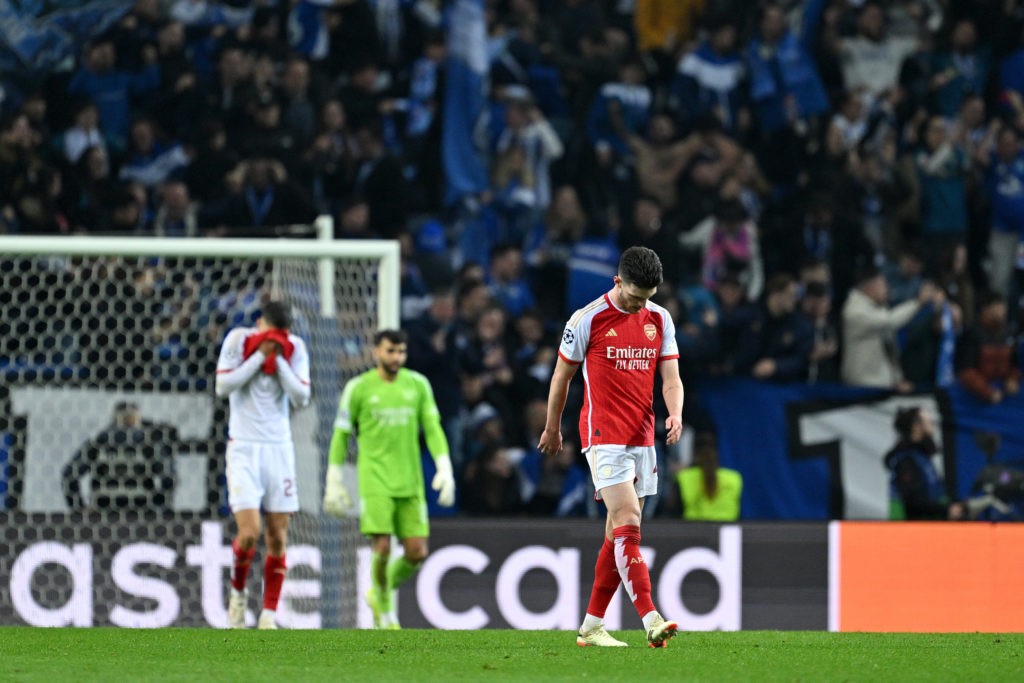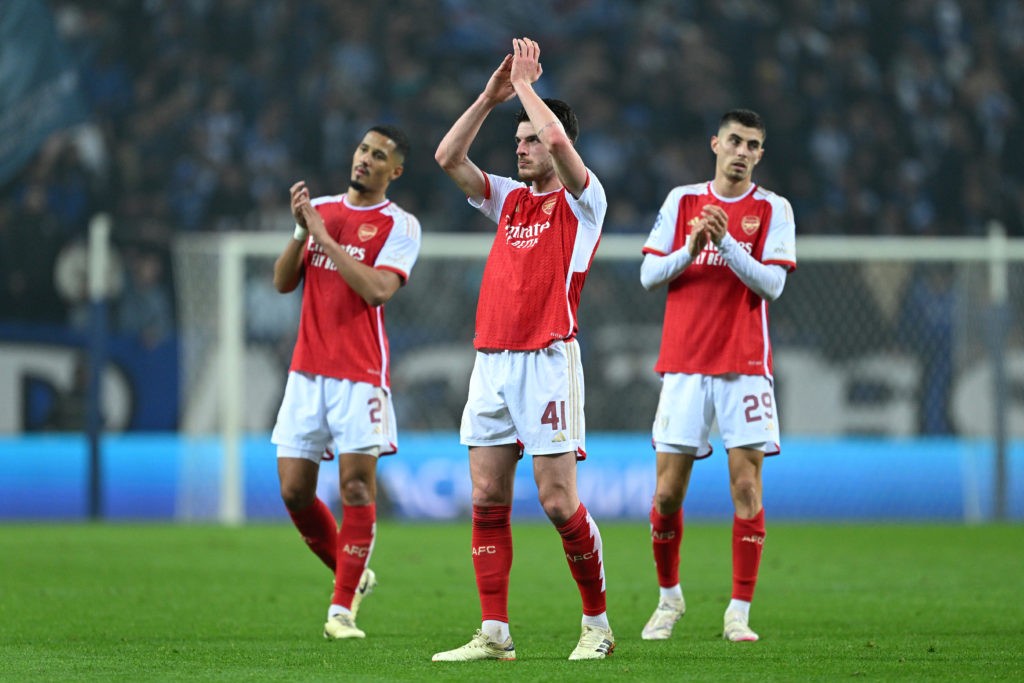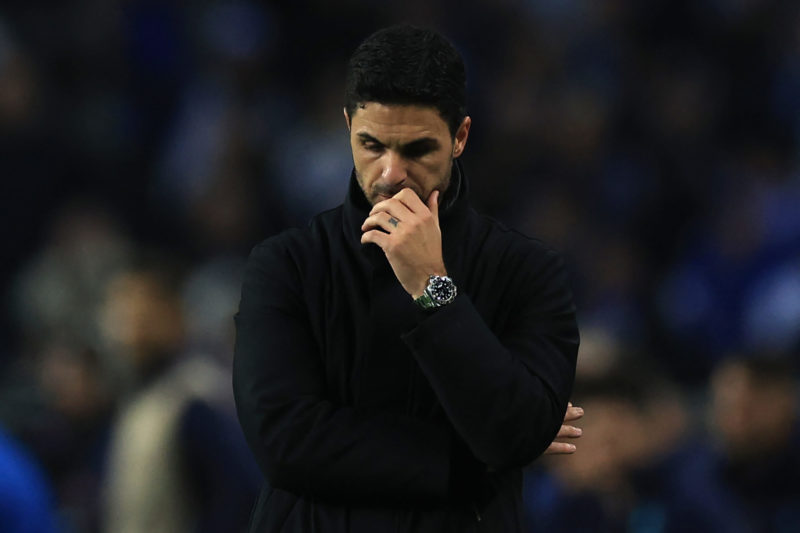FC Porto successfully stopped Arsenal from playing football for almost half of Wednesday’s Champions League last-16 first leg.

Sam Dean of The Telegraph reports, using an Opta Stat, that “the ball was in play for just 51.7% of tonight’s match between Arsenal and Porto.”
That is a new low for the round-of-16 ties this season, and undoubtedly contributed to the dearth of chances for the two teams, with Dean adding, “That is, by some distance, the lowest percentage of any of the round of 16 ties so far this season. For Lazio v Bayern, for example, it was 66.9%.”
With Porto sneaking a win in the dying seconds of the match, they deserve credit for changing their tactics so that they could effectively nullify their opponents for 90 minutes.
But perhaps questions also need to be asked of the officials that let the game play out that way.

36 fouls were committed by the two sides, with the referee setting an extremely low bar for what constituted a foul and Porto happily providing the theatrics to make sure there were plenty of them.
There was a lot of time lost on each of those set pieces, and the referee even held up the game at one point to get a Porto player to remove a ball from the field – after the player himself had kicked it onto the pitch to stop the game.
There was no yellow card shown for the deliberate time-wasting action.

The frustration for Arsenal will be that the time wasted across the two halves wasn’t added back on.
There was just one minute of additional time in the first half and four minutes in the second, which you could argue barely even covered the four breaks for five substitutions.
That’s a stark change from Arsenal’s recent Premier League fixtures, with the Gunners seeing an average of 11 minutes added on in their last three games.
Whilst the officials are a lot better at adding time back for VAR checks in today’s game, foul breaks just seem to result in lost time. When there are 36 foul breaks, that adds up.
After the game, Mikel Arteta admitted that they expected these sorts of tactics from Porto, but rightly highlighted it was up to the referee to manage it. “That’s the context of the game, we knew, we prepared [for it],” Arteta said at his post-match press conference. “That’s something the referee has to manage; we cannot do anything about it. And we’re going to have to handle it and play our game.”
Arsenal will need to find a way around those tactics at the Emirates Stadium next month and, as Arteta said, Arsenal have plenty of experience of playing against low blocks. “We are very used to playing against the defensive block,” Arteta said. “As I said especially in the first half, we had certain things. We will learn from it and be better in the return game.
“We really dominated the game, but we lacked purpose, especially in the first half to have much more aggression, to break lines, to play forward, to generate much more threat in their backline.
“In the second half, there were much better things, and we generated a lot of situations without really creating much from it, but we’ll learn from it. Now it’s clear, it’s half-time. If you want to be in the quarter-finals, you have to beat your opponent, that’s clear, and that will be the purpose and the plan with all our supporters together to do it.”
